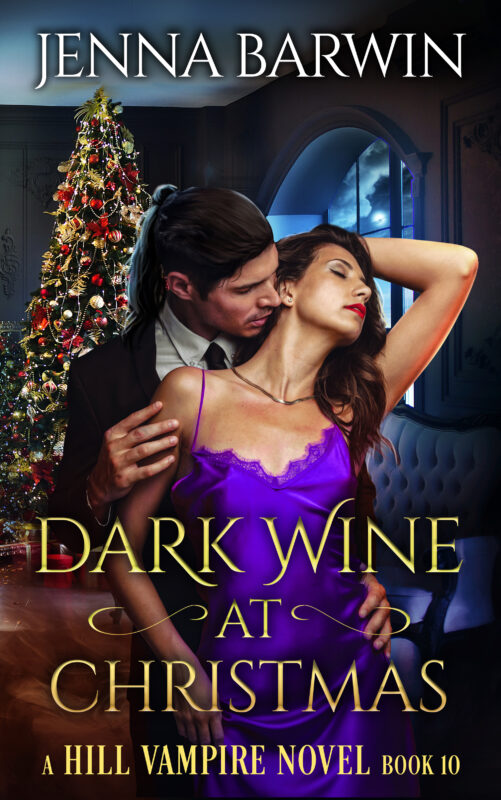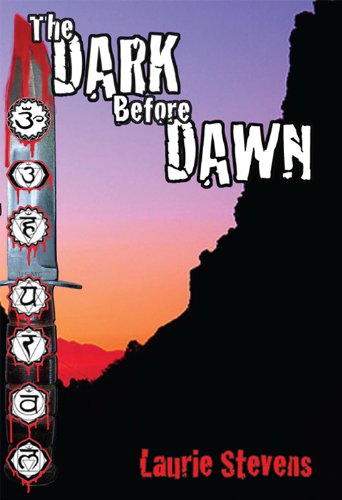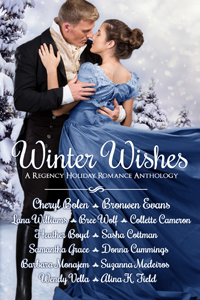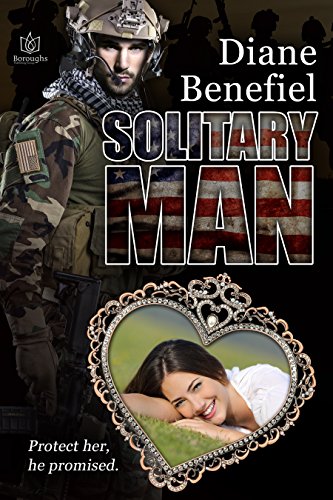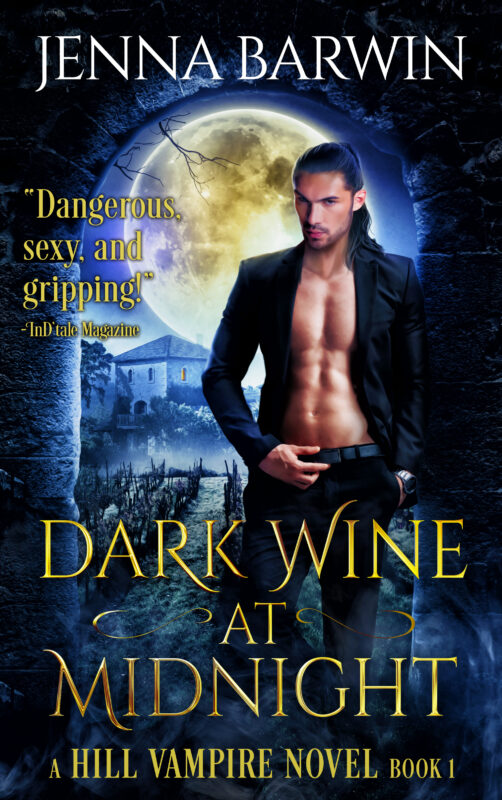Self-brainwashing…
June 24, 2017 by Isabel Swift in category From Isabel Swift tagged as brainwashing, Isabel Swift, noise, silence
I know, most of America drives around in their own cars, but those city dwellers who find themselves in the back seat of a taxi or other hired conveyance may sympathize with the situation. Many people that drive for a living have the radio on: talk radio, music, endless news, NPR. I have to confess, I am a big advocate for silence, and feel there should be a bi-partisan movement for the right to not have to listen to stuff (on airplanes, in elevators, in malls, etc.).
Sure, I could get (and indeed have) earphones. But I don’t want to block out the world, I want to hear it, just not endless marketing jabber or musak or whatever. But I am particularly unhappy with having to listen to endless news or much of talk radio. There are a few talk radio stations whose goal is to be entertaining or informative. But most lure their listeners in with conflict, outrage, fear, danger, scary information, etc. like a fish with a dangler lure….

These kinds of shows—TV, radio, whatever—wind listener’s clocks, pull their chain, and give them some frisson of energy, hate, fear, anger, which seems to be far more addictive and universal (clearly part of one’s “lizard brain“) than a feeling of peace, happiness, learning or engagement. It exhausts me to listen to the streams of exhaust! And I don’t have adequate shields to effectively block out noise. Yes, I freely confess, I can’t pack with the TV on. It’s just too distracting.
Propaganda works if you hear information over and over again, it wears away at your critical faculty (if you have one). It’s convincing, even it it’s patently untrue and utterly ridiculous. If you see it, hear it, read it, talk about it it gets truthified through endless repetition. So I now not only ask the drivers to turn off the radio, but tell them to stop listening to this endless, depressing stream of fairly useless information. It isn’t good for their outlook on life.
It’s all a creepy, voluntary self-brainwashing.
I now feel much more charitable towards endless sports! But really, they should be reading romances….
0 0 Read moreRomance Writer’s “Research”
May 30, 2017 by A Slice of Orange in category From Isabel Swift tagged as Isabel Swift, romance, writing Can we address the absurd queries about romance authors doing “research,” nudge, nudge, wink, wink? Does anyone ask mystery or horror writers how many people they had to disembowel before they could write their story? I don’t think so.
Can we address the absurd queries about romance authors doing “research,” nudge, nudge, wink, wink? Does anyone ask mystery or horror writers how many people they had to disembowel before they could write their story? I don’t think so.
(And of course, there is the fact that if they answered, they’d have to kill you).
It’s also delightfully contradictory, as others often accuse romances as being utterly unrealistic stories–that also apparently must be based on personal experience. Hmmmm. You must choose one or the other, but you really can’t have both those complaints simultaneously.
There is a dictum: write what you know, but luckily, it’s not a requirement.
Write what you can imagine.
Write what you think about, care about, fantasize about, dream about.
Write to explore what you don’t fully understand.
Write to open minds, to touch hearts.
It’s called fiction because you make it up…
1 0 Read moreThe “R” Word… by Isabel Swift
April 24, 2017 by Isabel Swift in category From Isabel Swift tagged as history, romance I thought I’d share a talk I gave on “The Substance of Romance” for the University of Pennsylvania Humanities Forum almost fifteen years ago (October 17th 2002)! I am indebted to Anne Maxwell/Elizabeth Lowell for her ideas included in a talk she gave at a Novelists Inc. conference many years ago. I don’t have the dates, but do know I have internalized her insights on literature/popular fiction and incorporate them here. Hope you enjoy! Isabel Swift
I thought I’d share a talk I gave on “The Substance of Romance” for the University of Pennsylvania Humanities Forum almost fifteen years ago (October 17th 2002)! I am indebted to Anne Maxwell/Elizabeth Lowell for her ideas included in a talk she gave at a Novelists Inc. conference many years ago. I don’t have the dates, but do know I have internalized her insights on literature/popular fiction and incorporate them here. Hope you enjoy! Isabel Swift
The Substance of Romance
I love reading romances. I love reading what might be termed “literary” romances. I love reading romances that are part of what would be defined as “popular fiction.”
Today I will be taking you through: a definition of terms; a brief historical framework of the genre; the wide ranging, broad and successful aspect of romances; criticisms the genre faces. But I plan mostly to focus on the remarkable timeless appeal of the romance genre, how it crosses boundaries of time & culture, how it has changed and continues to change as it continues to grow and thrive
So what is a romance? It is a work of fiction where the focus of the story is on the developing relationship between two people. The story’s climax resolves it and delivers a sense of emotional “justice” and satisfaction.
As with any genre, there must be essential narrative elements, or it’s not a romance: The center of the story is a love story with an emotionally satisfying ending. Archetypic narrative elements broadly include 5 things: Meeting; Attraction; Barrier; Destruction of barrier; Declaration.
In a tale well told, the destruction of that barrier frees the characters from their constraints. It empowers them to choose; it enables them to act, and the reader rejoices.
The genre is a diverse one, with many sub-genres, from contemporary to historical romances: Sexy, Sweet, Suspense, Paranormal, Humorous, Fantasy, Inspirational, Western, Regency…the possibilities are endless and endless possibilities have been explored. Romances have a universal and timeless appeal.
There is no unanimously agreed upon “first” romance, though romantic texts have been cited as early as the 4th Century B.C. The crusades, Arabian fables & chivalry all incorporate elements of romance. But in 1740 Samuel Richardson’s PAMELA delivered a clear romance novel and a best-selling one at that (interestingly beloved of both men & women at the time). In Clara Reeve’s Progress of Romance (1785) she notes that: Novels were seen as “pictures of real life and manners, and of the times in which they were written.” Whereas romances used “lofty and elevated language, describing what has never happened, nor is likely to.”
Some of what we see now as “overblown” prose clearly springs from this historical vision of romance. Henry Fielding (1707-1754) an 18th Century kind of guy who wrote a take-off on PAMELA— SHAMELA scorned romances. Sir Walter Scott (1771-1832) a 19th Century type of guy and a “romantic” scorned a novelist like Jane Austen (1775-1817). But both Scott and Austen wrote romances —one wrote larger than life stories, drawn on a sweeping canvas; one more intimate tales, realistic and of the times.
Romances, in general, represent over half adult popular mass market fiction, depending on your definition of “romance.” It was a 1.5 billion dollar industry last year (2001), with more than 2,000 titles released. 50 million women in North America read romances. Clearly romances are a vital element of our lives and in our literature. The stories cross cultures. They cross centuries. They continue to have phenomenal appeal.
While I want to focus on exploring that appeal, I did want to respond to some of my favorite criticisms of the genre: I must note that almost all criticisms are voiced by people who declare, without shame, I might add, that they’ve never actually read any romances. Interestingly, they do not see this fact as a disqualification for an opinion!
There’s the “pornography” one, which I can’t imagine anyone who has ever read a romance lending any credence to. The essence of a romance is about the unique rightness of uniting these particular two people and the challenges they face in creating a good partnership. The stories are about both the emotional and physical connection, body and soul. Some romances are certainly sexy, but the physical is always in the context of a connection between two unique people.
Romances are sometimes faulted for having romantic conventions and being part of a genre. Like Homer (and I feel that one could convincing argue that the Odyssey is a quintessential romance) and the Homeric epithet, these familiar elements are ways the teller of the tale communicates to her reader that she is in a genre, a world both familiar and new. While humans can enjoy change and uncertainty, many also enjoy elements in their life that can be depended on and are relaxing. The issue of “sameness” is the point, not the problem. If we turned some of these principals to, say, sports, I think we’d find some interesting commonalties and insights.
162 baseball games every year—year after year. Football, basketball, hockey, all are much the same. Same number of players, same positions. Now isn’t that boring? Don’t guys get tired of it? Don’t they wish everyone just switched places every inning or so? Or we added a few players? Or took some away? Just think of what the response would be to that. Outrageous! Absurd! It wouldn’t be baseball! (or football, or whatever). By the same token, a romance without the essential elements would not be a romance, it would not deliver the key elements that inspired the reader to select that genre and that story to begin with.
People decide to watch a basketball game because they want to watch a certain number of players of a particular sex play in a specific setting under a clear set of rules. And even within basketball, viewers are highly specific, many preferring to watch only professional or college or women’s basketball (or whatever). The rules are different; it’s a more exciting game, or less political (or whatever). Now that seems to me to be a fairly rigidly codified entertainment viewing experience, doesn’t it? Yet those same viewers express surprise at hearing similar types of preferences voiced with reading romances. Go figure.
With the sports viewing experience one could argue it is the suspense of finding out who wins that makes each game interesting. But the fact is that some people enjoy suspense, I really don’t.
Romance readers enjoy reading about relationships; they are interested in how the relationship puzzle is worked out. We read because we are optimistic, and we enjoy the genre’s assurance that sometimes things work out for the best. We believe in the positive power of love and in its ability to overcome obstacles. It gives us strength and hope as we face our own lives and the world we live in. In the stories the heroine, and she is a heroine, not a “protagonist” has a right to find happiness. She must discover what that means for her, which is often a process of self discovery and self acceptance. She must also have the courage to go after it. And happiness may not be what is expected.
Romances are usually by, for and about women. The heroine is the center, it is her story. They are stories of empowerment, stories where women succeed, her values are confirmed, her beliefs are validated. Ultimately, love is seen as a vitally important ingredient to life by both sexes. And all are worthy of love. But before hero or heroine can surmount the “barrier” they each must become a more complete and whole person. Strong enough to partner with another, to love and be loved.
And who does not want to be loved, valued and appreciated for who we are? Most also want to grow, succeed and be challenged to be more. Romances celebrate the commonalties and the differences, and each story strives to find that resonant middle ground. Romances explore the compromises we must make to live with others. To understand what are reasonable accommodations, and what are not. They remind us of the challenges of building a relationship, but also the triumphs.
It is hard to live with others and to share! But these are skills we need to work on as humans, we only have to look at the news to understand why.
Ideally the process of the romance story is the alignment of the yin/yang and the expression of the reverse circle in each, black within white, white within black, Jung’s animus and anima. The partnership allows a balance between hero and heroine, freeing the woman to be more independent, sexual, confident; freeing the man to be more vulnerable, emotional, capable of compromise. The whole becomes greater than the sum of its parts and forms the basis for a partnership, a family.
One could divide literature through the ages into tragedy or comedy: Tragedy: usually political, focused on power, often pessimistic, and ends in death. Comedy: focuses on social issues; optimistic, often ends in marriage, a celebration of life.
Romances have a positive, life affirming resolution, a HEA (Happily Ever After). Love stories, or stories with romantic elements don’t necessarily.
If we look at Shakespeare’s tragedies & comedies: Romeo and Juliet, though an intensely romantic love story is, of course, one of his tragedies because they all die. His romances, the Tempest being the best known, ends in marriage & his comedies do too.
Tragedies force us to face our mortality, a difficult, but necessary lesson. Works that address this are often deemed literature. The comic genre has a much harder time catching that “literary” brass ring, but they serve to remind us why it is we are happy to be alive, and why we’d rather not die, though we know we must.
Romances are stories that are meant to be entertaining. They aren’t how-to manuals for life, but they express a belief in life’s possibilities and the potential for chang, even if it is only change within. Romances make you feel good.
Romances authors usually start out or become readers. Their goals are to give back to their readers the pleasure they got from reading. They work to make the reading experience as enjoyable as possible. I don’t think anyone asks how many calories you’ve burned or weight you’ve lost going to the movies, you go to the gym for that! Romance writer’s desire is to entertain, not exercise. Everyone should feel empowered to take some time for pure enjoyment, to relax, refresh and center themselves, whatever that means to them.
Romances remind us of the world’s possibilities and the belief that partnerships, though difficult to establish and maintain, are possible, and can deliver remarkable benefits.
The romance genre springs from universal myths, tales and legends: the moral lessons, quests and the struggle between Good and Evil. Romances celebrate the ability of hero and heroine to have courage and compassion, to challenge themselves, to perservere and transcend obstacles, both real and metaphorical, through the power of love.
And I think we should continue to nurture and cherish those beliefs, now more than ever.
5 0 Read moreZombies!
September 24, 2016 by Isabel Swift in category From Isabel Swift tagged as Isabel SwiftYou know how myths and legends are actually early stage psychiatry?
They are stories that illustrate behaviors, offer life lessons and explore the dynamic between certain personalities. They demonstrate the impact of misunderstandings, the consequences of acting hastily and the importance of not dismissing people because they don’t meet your assessment of being a valuable player. They remind us of the need for courtesy to all (really, you just never know), and countless other helpful guideposts to better understand and survive in this complex world.
Jealous Hera, mischievous Loki, the old beggar woman asking for alms, the simple son, witches, goblins, vampires, werewolves, zombies….
Zombies! Yes, it sounds a bit ridiculous. Despite Haitan folklore, Vodou, Voodoo, or whatever spelling or incantation you choose—or even the possibility that the Undead do indeed walk—our present Zombie craze is highly stereotyped and stylized.
But you perhaps never thought of the Undead as a valuable life lesson—an accurate explanation of what life is actually like.
Think again.
It all starts innocently enough, you’re living your life, hanging out with your classmates, co-workers, colleagues, spending days, months, often years together, cordial, close, connected. You chat, share meals, share stories, share your life, your dreams, your experiences.
You think you are surrounded by humans, but all it takes is a change to clarify who in your group are the living dead—surviving off flesh or brains—and who are actually human. You graduate, your kids go to different schools, you move, you change jobs, you retire. Suddenly, you no longer have a brain or flesh worth eating—you have nothing to offer.
In fairness, you can’t stay friends with everyone & the drifting apart is often mutual, but it’s still an odd feeling to achieve invisibility with people you may have seen every day for years.
Retirement may be the most challenging adjustment, as other changes often just trade one group of the Undead for another. Opting out of the workforce can often eliminate your usefulness to others quite dramatically. Suddenly, you have nothing worth eating….
Visiting the old workplace you realize you are a ghost in the machine—invisible to most. Though it can sometimes be quite surprising who you are visible to, and to whom you have disappeared.
Just like in a Zombie film the humans are often not the ones you would expect.
0 0 Read moreAll about Eve…
April 24, 2016 by A Slice of Orange in category From Isabel Swift tagged as Isabel SwiftDuring a difficult dating phase in my youth (single and looking) I felt I’d set the bar for boy behavior about as low as it could go (on the ground).
But it kept being too high to clear in terms of what seemed like basic human decency. It was a bit depressing. At the time, I was thinking: WTF? (but without the acronym).
Indeed films of the era, like Unmarried Woman, confirmed that after dumping their wives of decades, guys mostly just traded in for a new model, whereas women were left holding the family together, coping with lost income, lost self-esteem, and taking a long and difficult journey to reconnect to their sense of self.
Guys remarried and started a fresh new replacement family, no remorse (though if the new wife turns out not to treat him quite as well as the earlier model, there may be some self-centered regret).
Males in general seemed to find a simpler way to negotiate the universe. Direct, uncomplicated, without self-doubt, self-questioning, able to dismiss mistakes and move on….Clueless. Happy.
Drove me crazy.
Then I thought about Genesis and how the Bible presents paradise as an innocent world. An ignorant world. Clueless. Happy.
Within that world view, the “Original Sin” that humankind is cursed with, is the sin of disobedience. Though I must note the particularly poignant fact is that when you look up “original sin,” it is referenced as “Adam’s sin” in eating from the Tree of Knowledge of Good and Evil. And as you know—per the Bible—Eve got there first and is vilified because of her actions. But in terms of history, it is his actions that are referenced, because, really, he’s the only one that counts.
So I was thinking about the “curse,” and that it was not just the “sin” of disobedience, but the declared “sin” of desiring the knowledge of good and evil. The desire to know more, to understand more, to open the door to information—with all its responsibilities, challenges and demands.
To stop being ignorant and be aware, accountable. To go beyond the self and not only appreciate your impact on others, but to acknowledge that you have choices. And that you are accountable for making those choices, and responsible for the consequences of your actions.
You have taken a bite, and the knowledge of good and evil is now inescapably part of who you are. It is a burden. It is a gift.
So during these difficult dating times, I wondered why women, on balance, seem to suffer more, be more aware, and often got the short end of the stick. It didn’t seem fair.
But then I reflected on Genesis and was helped by the following insight: Eve took a bite of the apple from the Tree of Knowledge of Good and Evil before Adam did.
And it seemed that that Eve’s first mover status—in reaching greater awareness and thus greater responsibility, sometimes greater pain—were metaphorically (and actually) carried forward though life. Women are cursed—or blessed—with the ability to tell the difference between good and evil just a little bit sooner, a little bit more than most men.
That was a helpful metaphor for me in explaining the fact that women are usually just a bit ahead of the game in that area.
And even more helpful when I asked myself the big question: would you rather be blissfully ignorant and happy, or accept the burden of knowledge, even if it might bring unhappiness?
My answer: If I had a choice, I would bite the apple. Despite the cost, no question.
Romances have always inspired me in their acknowledgement of that emotional burden. Reinforcing that we are not alone. Giving the support and validation to keep carrying it forward, with all its challenges.
0 0 Read moreAffiliate Links
A Slice of Orange is an affiliate with some of the booksellers listed on this website, including Barnes & Nobel, Books A Million, iBooks, Kobo, and Smashwords. This means A Slice of Orange may earn a small advertising fee from sales made through the links used on this website. There are reminders of these affiliate links on the pages for individual books.
Search A Slice of Orange
Find a Column
Archives
Featured Books
THE DARK BEFORE DAWN
High in the Santa Monica Mountains near Los Angeles, grisly murders are taking place.
More info →WINTER WISHES: A REGENCY HOLIDAY ROMANCE ANTHOLOGY
Stories that will sweep you away . . .
More info →SOLITARY MAN
On a battlefield in Afghanistan, Sgt. Ryder Bronson makes an oath to protect his dying friend’s wife from a rogue cop—and from the passion that will threaten to overwhelm them both.
More info →DARK WINE AT MIDNIGHT
To save humanity, a reluctant spy must convince a handsome vampire to trust her, despite the dark secrets each carries, and the mutual attraction they can’t resist.
More info →Newsletter
Contributing Authors
Search A Slice of Orange
Find a Column
Archives
Authors in the Bookstore
- A. E. Decker
- A. J. Scudiere
- A.J. Sidransky
- A.M. Roark
- Abby Collette
- Alanna Lucus
- Albert Marrin
- Alice Duncan
- Alina K. Field
- Alison Green Myers
- Andi Lawrencovna
- Andrew C Raiford
- Angela Pryce
- Aviva Vaughn
- Barbara Ankrum
- Bethlehem Writers Group, LLC
- Carol L. Wright
- Celeste Barclay
- Christina Alexandra
- Christopher D. Ochs
- Claire Davon
- Claire Naden
- Courtnee Turner Hoyle
- Courtney Annicchiarico
- D. Lieber
- Daniel V. Meier Jr.
- Debra Dixon
- Debra H. Goldstein
- Debra Holland
- Dee Ann Palmer
- Denise M. Colby
- Diane Benefiel
- Diane Sismour
- Dianna Sinovic
- DT Krippene
- E.B. Dawson
- Emilie Dallaire
- Emily Brightwell
- Emily PW Murphy
- Fae Rowen
- Faith L. Justice
- Frances Amati
- Geralyn Corcillo
- Glynnis Campbell
- Greg Jolley
- H. O. Charles
- Jaclyn Roché
- Jacqueline Diamond
- Janet Lynn and Will Zeilinger
- Jaya Mehta
- Jeannine Atkins
- Jeff Baird
- Jenna Barwin
- Jenne Kern
- Jennifer D. Bokal
- Jennifer Lyon
- Jerome W. McFadden
- Jill Piscitello
- Jina Bacarr
- Jo A. Hiestand
- Jodi Bogert
- Jolina Petersheim
- Jonathan Maberry
- Joy Allyson
- Judy Duarte
- Justin Murphy
- Justine Davis
- Kat Martin
- Kidd Wadsworth
- Kitty Bucholtz
- Kristy Tate
- Larry Deibert
- Larry Hamilton
- Laura Drake
- Laurie Stevens
- Leslie Knowles
- Li-Ying Lundquist
- Linda Carroll-Bradd
- Linda Lappin
- Linda McLaughlin
- Linda O. Johnston
- Lisa Preston
- Lolo Paige
- Loran Holt
- Lynette M. Burrows
- Lyssa Kay Adams
- Madeline Ash
- Margarita Engle
- Marguerite Quantaine
- Marianne H. Donley
- Mary Castillo
- Maureen Klovers
- Megan Haskell
- Melanie Waterbury
- Melisa Rivero
- Melissa Chambers
- Melodie Winawer
- Meriam Wilhelm
- Mikel J. Wilson
- Mindy Neff
- Monica McCabe
- Nancy Brashear
- Neetu Malik
- Nikki Prince
- Once Upon Anthologies
- Paula Gail Benson
- Penny Reid
- Peter J Barbour
- Priscilla Oliveras
- R. H. Kohno
- Rachel Hailey
- Ralph Hieb
- Ramcy Diek
- Ransom Stephens
- Rebecca Forster
- Renae Wrich
- Roxy Matthews
- Ryder Hunte Clancy
- Sally Paradysz
- Sheila Colón-Bagley
- Simone de Muñoz
- Sophie Barnes
- Susan Kaye Quinn
- Susan Lynn Meyer
- Susan Squires
- T. D. Fox
- Tara C. Allred
- Tara Lain
- Tari Lynn Jewett
- Terri Osburn
- Tracy Reed
- Vera Jane Cook
- Vicki Crum
- Writing Something Romantic
Affiliate Links
A Slice of Orange is an affiliate with some of the booksellers listed on this website, including Barnes & Nobel, Books A Million, iBooks, Kobo, and Smashwords. This means A Slice of Orange may earn a small advertising fee from sales made through the links used on this website. There are reminders of these affiliate links on the pages for individual books.


